First Round of Consultation in Bangkok Yields Substantial Results to CEDAW Committee’s General Recom
Date:
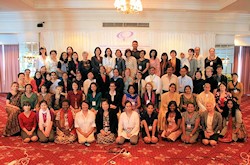 BANGKOK (29 March 2012) – An Asia-Pacific women’s human rights consultation has concluded today to bring to light the diversity of conflicts, international disturbances and gross-violations of women’s human rights to the eyes of visiting CEDAW Committee experts.
BANGKOK (29 March 2012) – An Asia-Pacific women’s human rights consultation has concluded today to bring to light the diversity of conflicts, international disturbances and gross-violations of women’s human rights to the eyes of visiting CEDAW Committee experts.
Government agencies, national human rights institutions, and civil society organizations from 14 nations from South Asia, East and Southeast Asia and Pacific gathered in Bangkok in a two-day regional forum together with two members of the Committee on the Elimination of Discrimination against Women (the Committee) Pramila Patten and Zohra Rasekh.
Supported by UN Women and the Office of the High Commissioner for Human Rights (OHCHR), the CEDAW Committee’s Asia Pacific Regional Consultation for the Proposed General Recommendationon Human Rights of Women in Situations of Conflict and Post-conflict was the first regional consultation that the Committee initiated on this General Recommendation. The Kuala Lumpur-based NGO International Women’s Rights Action Watch Asia Pacific facilitated the event.
The consultation in Asia Pacific precedes similar fora scheduled for Africa, Central Europe and Latin America in the coming months.
The participants from the Asia Pacific region shared lived experiences of women from the conflict areas who have been denied opportunities for participation in peace-building processes and access to justice. Ms. Patten and Ms. Rasekh appreciated such rich reflection of the impact of diverse recognized and unrecognized conflicts and post conflict situations.
Messages from Ms. Patten’s synthesis of the two-day discussion include: “Many conflicts have no easily recognizable beginnings and ends. Chronic conflict affects many State parties and transition and post-conflict are often not clearly definable times. Conflicts are the product of many different actors, processes and states, not simply the state on whose territory the conflict occurs. Women take on diverse positions in conflict. They may be marginalized by conflict or may benefit from it. Women may be affiliated with dominant, oppositional or outlawed political groups. Women may be of a dominant group, thereby benefiting from the power of that group in society. On the other hand, women may be aligned or assumed to be cooperating with various groups that engage, fuel or resist conflict. In the course of conflict women combatants and women who are formally or informally associated face various forms of discrimination, both in terms of advancement within formal armed services and in other forms of rights violations including sexual exploitation, exclusion from decision-making, denial of access to crucial health services.
“In post-conflict settings, while formal and informal armed groups are frequently involved in negotiations and peace-building processes, women affiliated with armed forces are often overlooked. Disarmament, demobilization and reintegration programmes tem to be modeled on the needs and demands of male combatants who are more frequently issued weapons, uniforms, rankings and other identifiers, Ms. Patten said in her synthesis.
The CEDAW Committee issues General Recommendations (GR) on any issues affecting women to which it believes the States parties should devote more attention. The GR provides authoritative guidance to States parties on the legislative, policy and other appropriate measures to ensure full compliance with their Convention obligations to protect, respect and fulfill women’s human rights in conflict and post-conflict contexts.
“It is important that situations of women in conflict and post-conflict are captured in the GR and that attention be paid to the particular situations, motivations, capacities and restraints on women as well as the gender specific needs to these women during conflicts, transition and post-conflict periods, Ms. Patten said.
“This attention should include concerns for the women as perpetrators of crimes as well as victims: recent trials of women for war crimes highlight the need for the Convention on the Elimination of all Forms of Discrimination against Women (CEDAW), through this GR to develop the underlying equal rights of women when they are defendants and prisoners of war, including freedom from arbitrary detention, liberty and degrading treatment and rights to a fair trial, the CEDAW expert added.
The Convention is the authoritative legal instrument on women’s human rights and a binding source of international law for those States that have ratified it, setting out the meaning of internationally recognized norms and standards of non-discrimination on the basis of sex and gender we well as containing provisions with far-reaching human rights guarantees in the civil, political, economic, social and cultural fields. To date, one hundred and eighty six States have ratified the Convention and are therefore legally bound to implement its provisions.
All articles in the Convention are relevant to conflict. CEDAW contains no derogation clause and State parties must be on notice that discrimination against women cannot be justified in times of conflict. The obligations of states to respect, protect and fulfill rights in the context of conflicts and their aftermath under CEDAW must address state obligations for non-state actors. State responsibility for extraterritorial impacts has been recognized by both international human rights treaty bodies and international courts.
National and regional level women’s rights groups, NGOs and networks in the Asia Pacific can send submission for the proposed GR on Human Rights of Women in Situations of Conflict and Post Conflict through http://www.unwomen-eseasia.org/News/call_for_submission_cedaw2012.html Eligible parties should be actively engaged in protecting women’s rights during conflict and in peace-building and reconstruction processes during the post-conflict and transition settings.
Photos
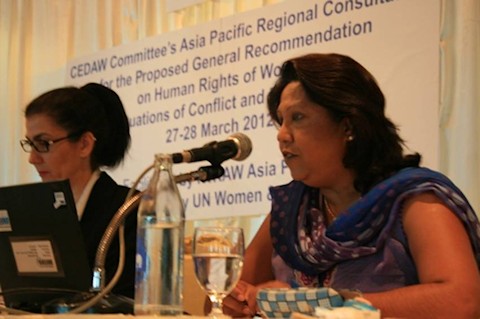 From right: Pramila Patten, CEDAW Committee member and chairperson of the Working Group on general recommendation on the protection of women’s human rights in conflict and post-conflict contexts; Zohra Rasekh, CEDAW Committee
From right: Pramila Patten, CEDAW Committee member and chairperson of the Working Group on general recommendation on the protection of women’s human rights in conflict and post-conflict contexts; Zohra Rasekh, CEDAW Committee
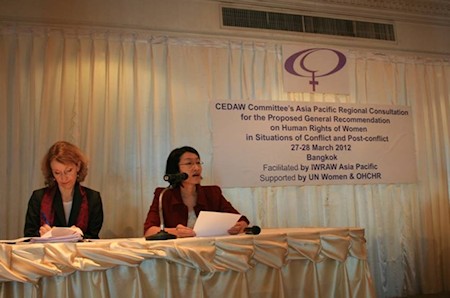 From right: Shoko Ishikawa, Acting Regional Director, UN Women East and Southeast Asia; Heike Alefsen, Human Rights Officer, Office of the United Nations High Commissioner for Human Rights (OHCHR) delivered Opening Remarks. .
From right: Shoko Ishikawa, Acting Regional Director, UN Women East and Southeast Asia; Heike Alefsen, Human Rights Officer, Office of the United Nations High Commissioner for Human Rights (OHCHR) delivered Opening Remarks. .
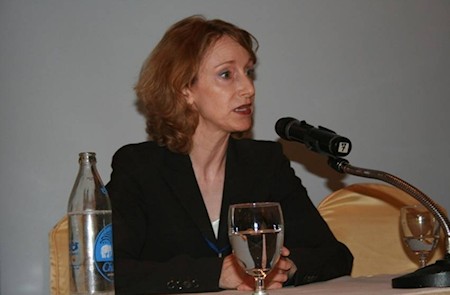
Heike Alefsen, Human Rights Officer, Office of the United Nations High Commissioner for Human Rights (OHCHR)
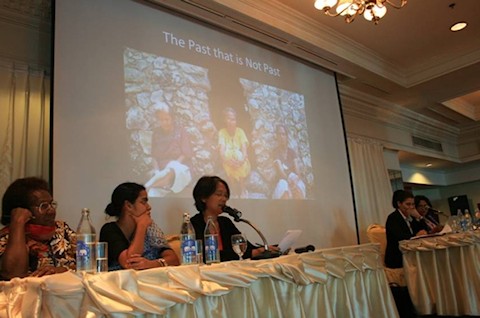 The participants from the Asia Pacific region shared lived experiences of women from the conflict areas.
The participants from the Asia Pacific region shared lived experiences of women from the conflict areas.
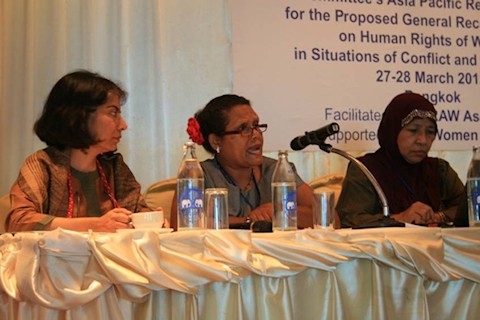 The participants from the Asia Pacific region shared lived experiences of women from the conflict areas.
The participants from the Asia Pacific region shared lived experiences of women from the conflict areas.
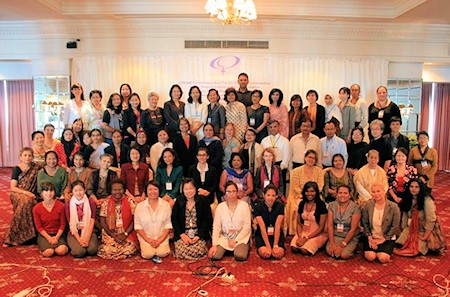 Government agencies, national human rights institutions, and civil society organizations from 14 nations from South Asia, East and Southeast Asia and Pacific
Government agencies, national human rights institutions, and civil society organizations from 14 nations from South Asia, East and Southeast Asia and Pacific
----------------------------------------------------------------------------------------